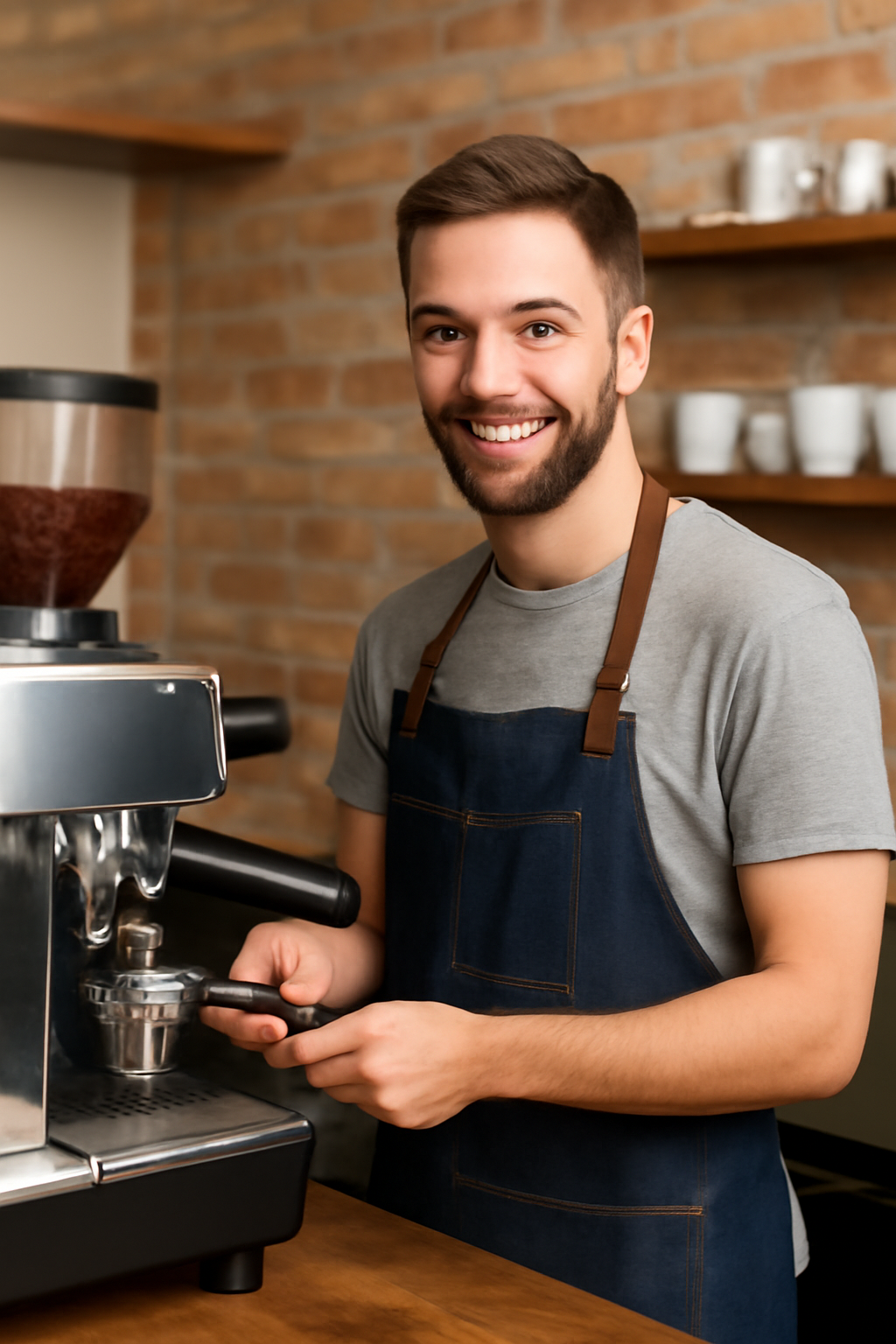Becoming a professional barista is an exciting journey that combines passion for coffee, skill development, and customer service. Whether you dream of working in a specialty coffee shop or opening your own café, understanding the fundamentals is essential to succeed in this competitive and rewarding field. This comprehensive guide will walk you through the key steps to get started as a professional barista, focusing on practical advice, essential skills, and insider tips that will prepare you for the world of coffee.
Understanding the Role of a Barista
A barista is much more than someone who simply makes coffee. The role involves mastering the art of brewing coffee, understanding coffee beans and equipment, and delivering exceptional customer experiences. A professional barista should be knowledgeable about different coffee types, brewing methods, and the science behind extraction to ensure each cup is of the highest quality. Additionally, communication skills and the ability to work efficiently under pressure are crucial in busy café environments.
Developing a Passion for Coffee
Before diving into the technical skills, it’s important to cultivate a genuine passion for coffee. Explore different coffee varieties, origins, and flavors by tasting as many types of coffee as you can. Visiting specialty cafés, attending coffee tastings or cuppings, and reading about coffee culture will deepen your appreciation and inspire your journey. Passion fuels motivation, and it’s what sets outstanding baristas apart.
Essential Equipment You Need to Know
Familiarize yourself with the essential equipment used by baristas:
- Espresso Machine: The heart of any coffee shop. Understanding how to operate and maintain an espresso machine is fundamental. Learn about dosing, tamping, extraction time, and temperature control.
- Coffee Grinder: A quality grinder ensures consistent grind size, which directly affects the taste of the coffee. Learn how to calibrate and clean your grinder regularly.
- Milk Frother/Steamer: For creating steamed milk for cappuccinos, lattes, and other drinks. Mastering milk texturing techniques will help you create creamy, velvety foam.
- Scales and Timers: Precision is key in coffee making. Using scales to measure coffee dose and timers to track extraction time helps maintain consistency.
- Cleaning Tools: Keeping equipment clean is crucial for maintaining taste quality and machine longevity.
Learning the Basics of Coffee Brewing
Start with mastering the basics of espresso, as it is the foundation of many coffee drinks. Understand the grind size, dose (amount of coffee), tamping pressure, water temperature, and extraction time. Typically, an espresso shot requires around 18-20 grams of coffee, with water at about 93°C (200°F), extracted in 25-30 seconds.
Practice pulling shots consistently to develop a feel for the process. Observe the color, crema, and taste of your espresso to identify under-extraction (sour taste) or over-extraction (bitter taste). This sensory feedback is vital for improving your technique.
Mastering Milk Texturing and Latte Art
Milk texturing is another critical skill. Learn how to steam milk to create microfoam—smooth, velvety milk that enhances the flavor and texture of your coffee. Perfect milk texturing will also enable you to create latte art, an impressive visual element that delights customers and showcases your craftsmanship.
Start with basic shapes like hearts and rosettas, gradually advancing to more complex patterns as you gain confidence.
Understanding Coffee Beans and Roasts
Knowing your coffee beans is essential. Coffee beans come from various regions, each offering unique flavor profiles influenced by climate, altitude, and processing methods. Learn the difference between Arabica and Robusta beans, and how different roast levels (light, medium, dark) affect flavor.
Taste and compare different beans to train your palate. This knowledge helps when advising customers or selecting beans for brewing.
Customer Service and Efficiency
A barista’s role is not only technical but also social. Delivering excellent customer service enhances the café experience and builds loyalty. Practice friendly communication, active listening, and handling orders efficiently, especially during busy hours.
Managing multiple tasks—taking orders, preparing drinks, cleaning, and restocking—requires organization and multitasking skills. Staying calm and focused in a fast-paced environment is a hallmark of a professional barista.
Getting Formal Training and Certification
While passion and self-learning are important, formal barista training can significantly boost your skills and credibility. Look for certified barista courses offered by coffee associations or specialty coffee organizations. These courses cover espresso preparation, machine maintenance, sensory skills, and customer service.
Certification can improve your job prospects and open doors to advanced opportunities in the coffee industry.
Gaining Practical Experience
Hands-on experience is invaluable. Seek internships, apprenticeships, or entry-level barista positions to practice your skills in real-world settings. Observe experienced baristas, ask questions, and take feedback constructively.
Volunteering at coffee events or participating in barista competitions can also expand your network and deepen your expertise.
Building Your Barista Career Path
After mastering the basics and gaining experience, consider your career goals. Many baristas advance to roles such as head barista, trainer, or café manager. Others branch into coffee roasting, quality control, or start their own businesses.
Continuous learning is key. Stay updated on coffee trends, new brewing methods, and industry innovations by attending workshops, reading industry publications, and connecting with coffee professionals.
Tips for Success as a New Barista
- Practice consistently to improve your technique and speed.
- Develop your palate by tasting diverse coffees regularly.
- Maintain cleanliness to ensure quality and hygiene.
- Network within the coffee community for support and opportunities.
- Stay patient and persistent; mastery takes time.
The Rewards of Being a Professional Barista
Being a barista offers more than a job—it’s a craft and a lifestyle. You get to share your passion with others, create moments of joy through coffee, and be part of a global community. The skills you develop can open many doors, both locally and internationally.
If you are ready to start this journey, immerse yourself in learning, embrace challenges, and enjoy every cup you make. Your path to becoming a professional barista begins now.

